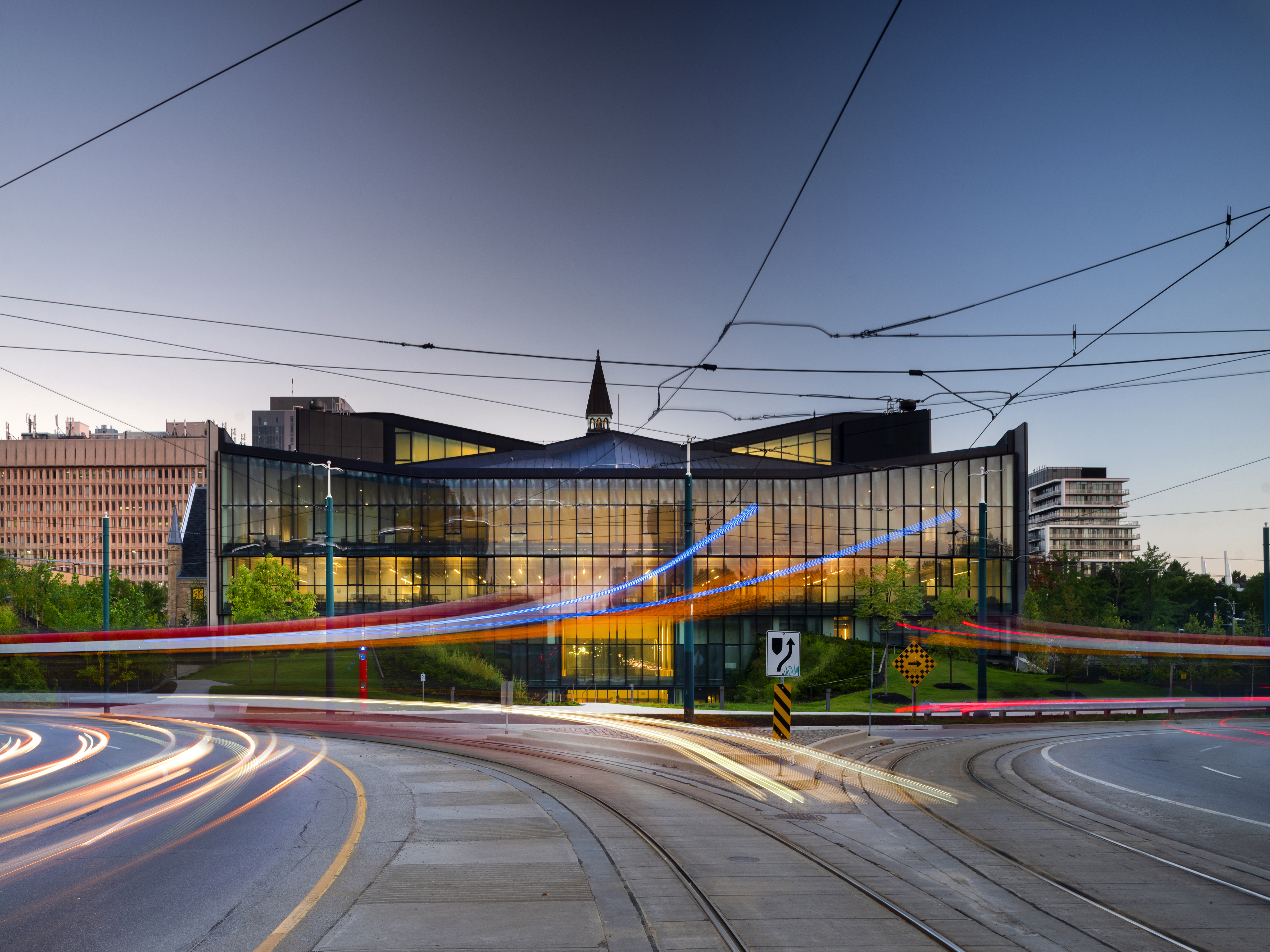
How...? Ten Questions on the Future of Education and Engagement
-
Dean’s opening dialogue
Juan Du (Daniels Faculty Dean and Professor, University of Toronto), in conversation with:
Shashi Kant (Professor of Forest Economics and Sustainability, University of Toronto)
Kaari Kitawi (Landscape Architect, Urban Designer, City of Toronto)
Bruce Kuwabara (Founding Partner, KPMB Architects)
Yan Wu (Public Art Curator, City of Markham)
"How...? Ten Questions on the Future of Education and Engagement" is a dialogue between Dean Du and four alums who are making important contributions to the academic culture of the Daniels Faculty and the civic life of Toronto. As educators, scientists, designers and curators, we gather to discuss the legacy of the school and explore our future directions.
Structured around ten urgent questions on education and engagement, the conversation seeks to explore how the realities of our rapidly changing world inspire, challenge, and demand changes in how we learn, teach, research, and practice. Moreover, how could we deploy and leverage our knowledge and training as tools for critical reflection, and, ultimately, societal change?
This hybrid event will take place in-person, outdoors at the Stantec Architecture Courtyard (north side of the Daniels Building) as well as online via Zoom. Advanced registration is required for both experiences. Reserve your ticket for the online event or reserve a ticket for the in-person event.
In the case of inclement weather, the in-person event will move inside the Daniels Building to Main Hall and the Student Commons. As of Sept. 22, 2021, proof of full vaccination is required at the point of entry for indoor events. Please be sure to have your vaccination information and photo ID available.
For those attending in-person, you will be allowed to claim your seat on the lawn or the Stantec Architecture Courtyard beginning at 6 p.m. Ticket holders must arrive by 6:20 p.m. with a printed or mobile ticket to claim a seat. There will be a rush line for those without tickets. Any unclaimed seats will be released to the rush line at 6:20 p.m.
How...? Ten Questions on the Future of Advocacy and Change
The dialogue event is also coinciding with the opening of “How...? Ten Questions on the Future of Advocacy and Change,” an exhibition of Daniels Thesis Projects in Architecture, Forestry, Landscape Architecture, Urbanism and Visual Studies. Works in this exhibition were produced by students from the graduating class of 2021, representing the diverse programs in the Daniels Faculty. Framed by 10 questions, the projects interrogate possible futures while emphasizing the methods and processes of interrogation.
The exhibition will be on view in the Larry Wayne Richards Gallery in the Daniels Building. Please consult the Daniels Faculty COVID-19 FAQs and UTogether hub for information about visiting campus.
About the speakers
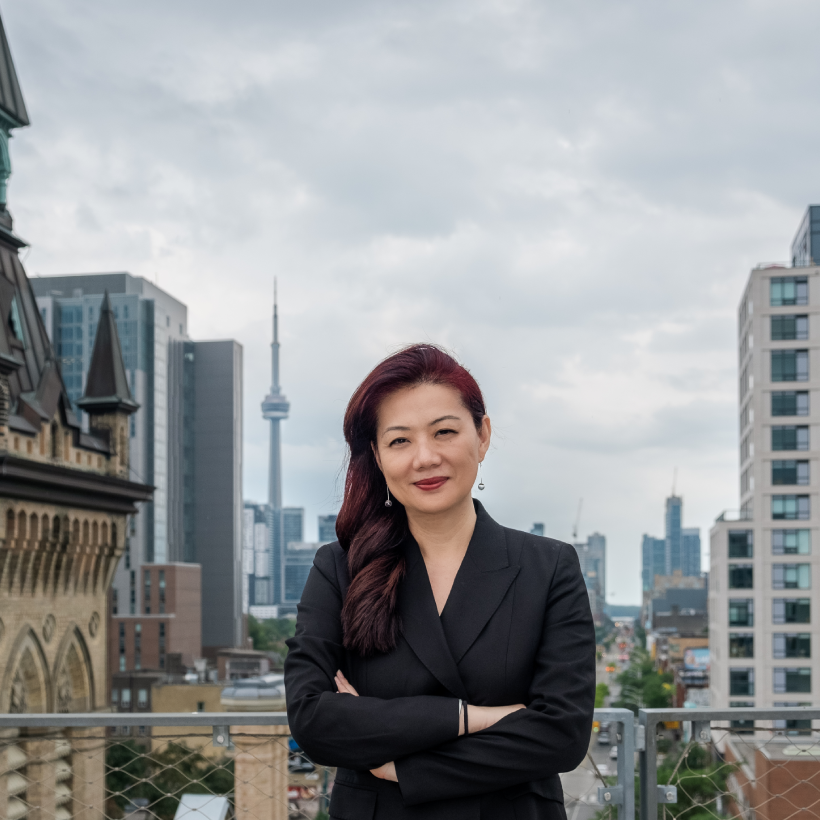
Juan Du (Daniels Faculty Dean and Professor, University of Toronto)
Professor Juan Du is dean of the John H. Daniels Faculty of Architecture, Landscape, and Design. She joined the Faculty in July 2021 following extensive experience in teaching, research and academic leadership. She has practiced in the U.S., Europe and China, establishing her Hong Kong-based office IDU in 2006. Projects range from human-scale built forms to large-scale urban plans.
Her works have been exhibited internationally with recognitions such as Best New Practices in Hong Kong (PLOT, Argentina) and The Luminary Award (INDE, Australia), and featured in New Chinese Architecture: Twenty Women Building the Future (Thames & Hudson, London). She has also curated exhibits for the Venice Architecture Biennale, the Hong Kong Bi-City Biennale of Urbanism\Architecture and the Shenzhen Museum of Contemporary Art and Urban Planning.
Du also directs the Urban Ecologies Design Lab. By understanding the city as interacting and evolving urban systems, designs become contextualized interventions for impact and change. Du collaborates with governmental institutions, community organizations and NGOs to champion marginalized groups such as indigenous villagers, migrant workers and the working homeless.
Du is a scholar on Asia’s urbanization; her work has been featured in prominent publications (New York Times, The Wall Street Journal) as has her writing (The Architectural Review, Volume and more). Her award-winning book, The Shenzhen Experiment: The Story of China’s Instant City, was published by Harvard University Press in 2020.
Du has taught at the University of Hong Kong and the Massachusetts Institute of Technology. She holds a Doctorate of Science in Architecture from ETH Zürich, Master of Architecture from Princeton University and Bachelor of Design in Architecture from the University of Florida. She is the recipient of a U.S. Fulbright Fellowship for research on Chinese urbanization and architecture.
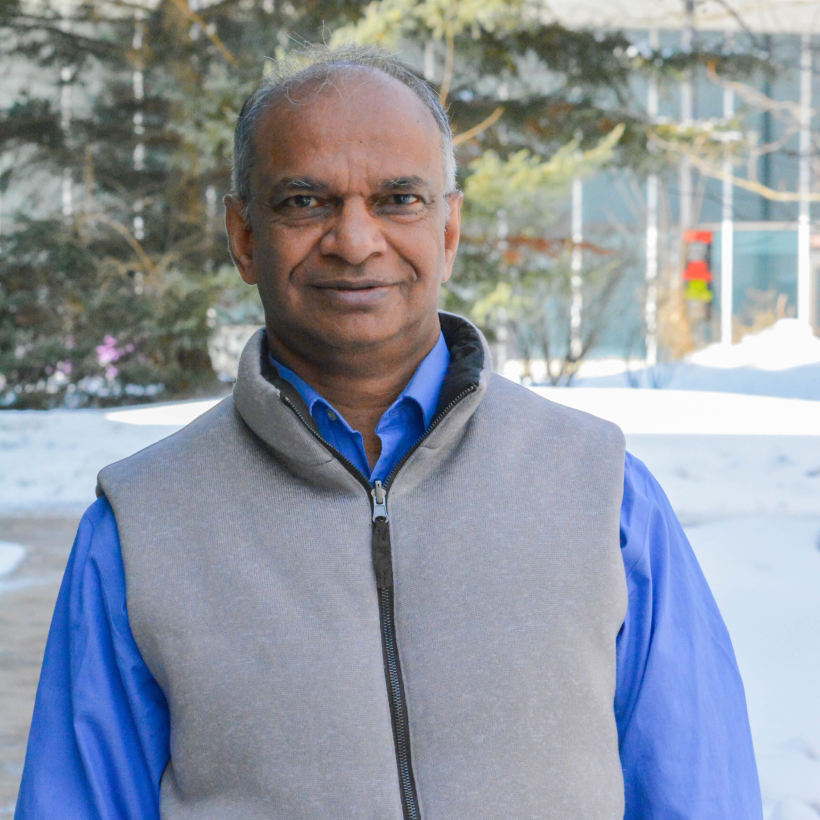
Shashi Kant (Professor of Forest Economics and Sustainability, University of Toronto)
Forestry class of 1996
Dr. Shashi Kant is a professor of forest resource economics and management, and the founding director of the groundbreaking Master of Science in Sustainability Management program at the University of Toronto Mississauga. He specializes in forest resource economics and forest management systems with an emphasis on economics of sustainable forest management.
Kant has been promoting a unique approach for global sustainability that integrates the concepts of love and sustainability and puts a lot of emphasis on the growth of students as human beings. He is editor-in-chief of a book series, Sustainability, Economics and Natural Resources, and has served on editorial boards for Forest Policy and Economics, Journal of Forest Economics, Canadian Journal of Forest Research and Forest Ecosystems.
He has served as a member of the selection committee for the Soren Wibe Prize in Forest Economics, and the coordinator of IUFRO Research Group on Forest Resource Economics. Kant is leading a global think tank, New Frontiers of Forest Economics. He has received many national and international awards for his research and its impact, including the Order of Ontario (2017), the Queen’s Award for Forestry (2008), the Scientific Achievement Award of Canadian Institute of Forestry (2007), the Scientific Achievement Award of the IUFRO (2005) and the Ontario’s Premier Research Excellence Award (2004).
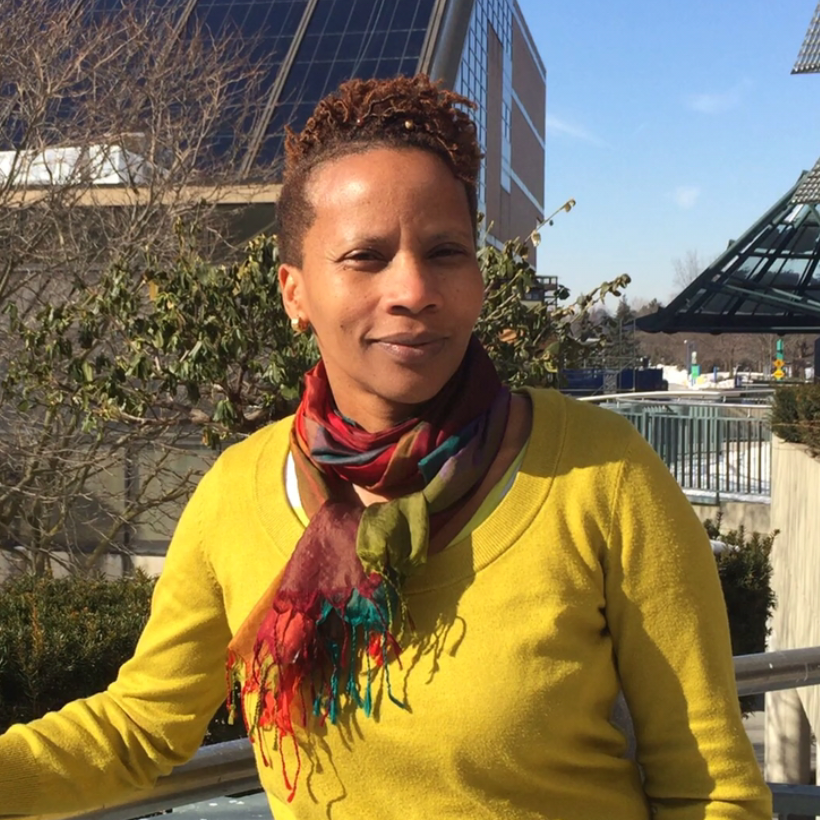
Kaari Kitawi (Landscape Architect, Urban Designer, City of Toronto)
Landscape Architecture class of 2015
Kaari Kitawi is a landscape architect and urban designer. She is a graduate of the Masters of Landscape Architecture program at the University of Toronto and has a Bachelor of Science in Mathematics from the University of Eastern Africa, Baraton in Kenya.
Kitawi works for the City of Toronto as an Urban Designer in the City Planning Department. Her work involves reviewing development applications and conducting studies. She is a full member of the Ontario Association of Landscape Architects and is an editorial board member for Ground Magazine.
Prior to moving to Canada, Kitawi run her own landscape company, Refuge Gardens Ltd., for more than 10 years. Her company had projects of varied scale and scope in Kenya, Uganda, Tanzania and Djibouti. Her clients included Deloitte, Toyota, East Africa Community Parliament, East African Breweries Ltd, Daystar University, Kenya Airways and Enashipai Resort and Spa among others.
Kitawi is involved in conducting outreach to elementary and high school students to expose them to urban planning and landscape architecture at an early age. She is also part of the MLA Advisory Board, working with Program Director Liat Margolis on developing anti-racist strategies for a more diverse and inclusive Landscape Program.
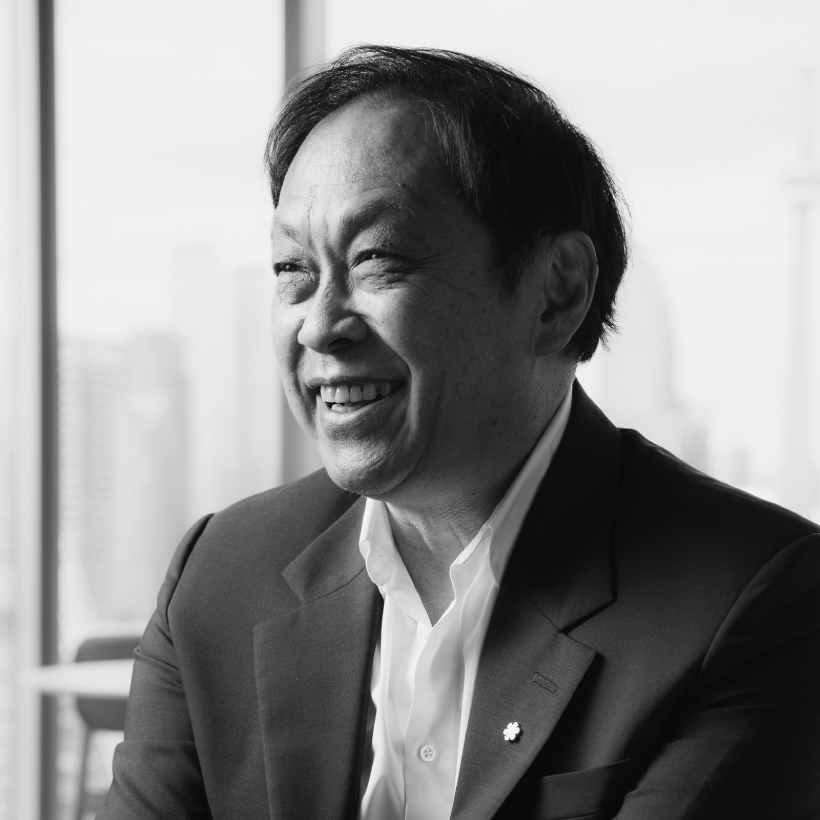
Photo: Karri North
Bruce Kuwabara (Founding Partner, KPMB Architects, O.C., OAA, FRAIC, AIA, RIBA)
Architecture class of 1972
Bruce Kuwabara is a founding partner of KPMB Architects and the chair of the Canadian Centre for Architecture in Montreal. In 2006, he was awarded the Royal Architectural Institute of Canada Gold Medal, and in 2012 he was invested as an officer of the Order of Canada for shaping “our built landscape in lasting ways.” He was lead design partner on 13 of KPMB’s 16 Governor General’s Award-winning projects.
His portfolio encompasses cultural, civic, educational, hospitality and healthcare projects. Notable cultural work includes Canada’s National Ballet School, the Canadian Museum of Nature in Ottawa and the Remai Modern art gallery in Saskatoon. Educational projects include the Julis Romo Rabinowitz Building and Louis A. Simpson International Building at Princeton University and the Destination Project at the University of Lethbridge.
Kuwabara advocates for the integration of performance and aesthetics. He led teams for the Canadian Embassy in Berlin. Working on an integrated design team, he designed Manitoba Hydro Place, which is a global exemplar for high-performance, low-energy building design. He has worked on four LEED Platinum projects: Manitoba Hydro Place, the office building of the Elementary Teachers Federation of Ontario, Bay Adelaide East Tower and the Kellogg School of Management. Kuwabara leads interdisciplinary design teams to deliver large-scale neighbourhood projects. This work includes the Athlete’s Village for the Pan/Parapan Games in 2015, which is now the Canary District in Toronto and the Pier 8 waterfront development in Hamilton.
Current projects include the Contemporary Calgary Art Gallery, Boston University’s Center for Computing and Data Sciences, Bay-Adelaide Centre North Tower, the Centre for Addiction and Mental Health’s Research Centre and the Art Gallery of Nova Scotia (AGNS). A strong advocate of Canadian architecture, Bruce serves as a critic and guest lecturer across North America.
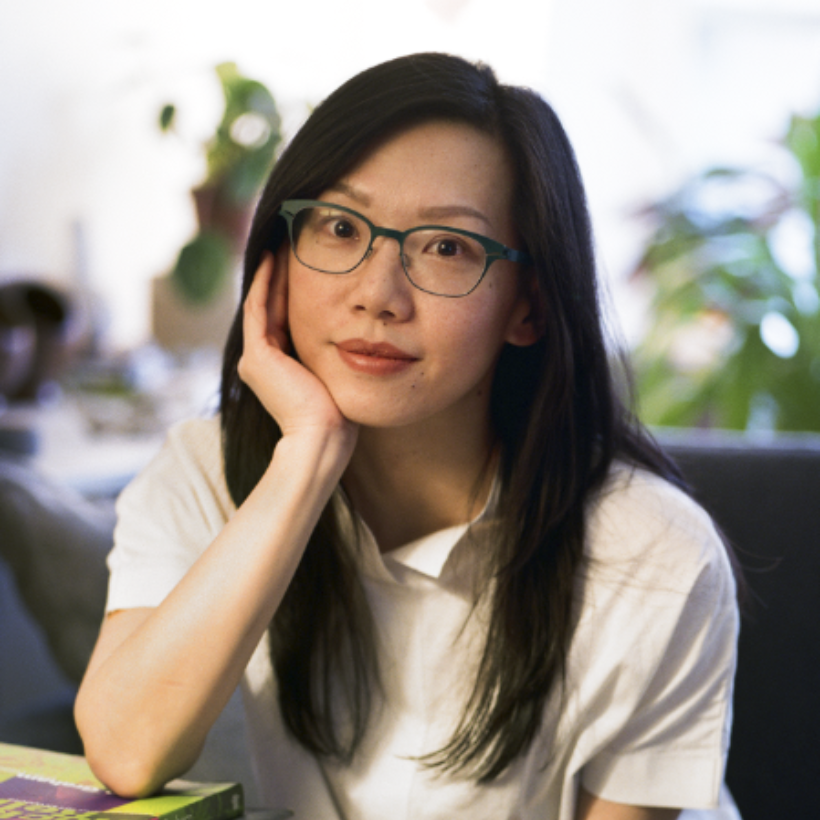
Photo: Sarah Bodri
Yan Wu (Public Art Curator, City of Markham)
Visual Studies class of 2015
Born in Shanghai, Yan Wu moved to Canada in 2001. She holds a Master of Visual Studies, Curatorial Studies, from the Daniels Faculty of Architecture, Landscape, and Design at the University of Toronto, and a Bachelor of Computing from the University of Guelph. Currently, she is public art curator for the City of Markham, where she recently oversaw the city’s first five-year public art master plan and is now managing its implementation.
Wu was the curator-in-residence at the Art Museum at the University of Toronto (2016-17), where she is now guest-curating Chinese artist Miao Ying’s first solo exhibition in Canada (January 2022). In 2015, she was assistant curator for the inaugural Shanghai Urban Space Art Season, and in 2013, co-curated the Canada Pavilion at the fifth Bi-City Urbanism/Architecture Biennale in Shenzhen China.
As a translator and writer, Wu co-translated the Chinese language editions of Rosalind Krauss’s Passages in Modern Sculpture (2016), Lucy Lippard’s Six Years (2018), Dan Graham’s Rock My Religion (2018) and Formless by Yves-Alain Bois and Rosalind Krauss (2021), all commissioned by the Central Academy of Fine Arts and Sui Jian Guo Art Foundation in Beijing, China. Wu co-translated John Cage’s Not Wanting to Say Anything About Marcel (2020) and is currently working on the Chinese text for an interactive website about Marcel Duchamp’s Boîte-en-valise, both commissioned by the M+ Museum in Hong Kong.
Since 2016, Wu has been English editor for Time + Architecture, Tongji University in Shanghai, China. In 2022, Wu will be teaching Interventions: Art in Public Places at the Daniels Faculty.

